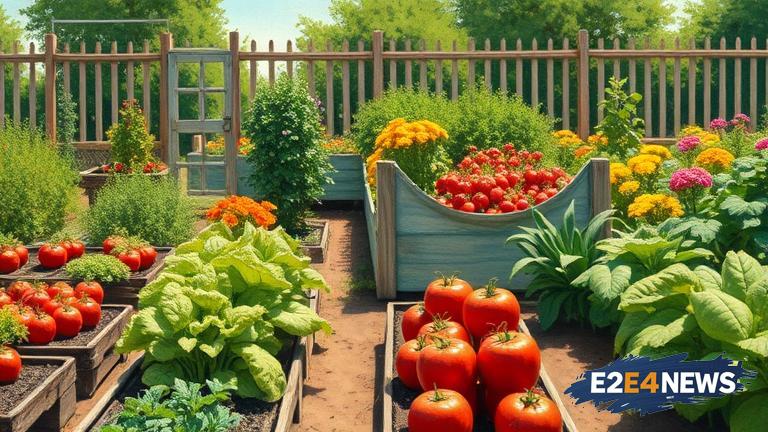In a recent interview on Fox News Radio, a guest discussed the concept of ‘victory gardens,’ a term coined during World War I and II, where citizens were encouraged to grow their own fruits and vegetables to support the war effort. The idea is being revived today, as people look for ways to promote patriotism and self-sufficiency. The guest explained that victory gardens are not just about growing food, but also about cultivating a sense of community and national pride. By growing their own produce, individuals can take control of their food supply and reduce their reliance on industrial agriculture. This movement is also seen as a way to promote healthy eating and reduce the carbon footprint associated with transportation and packaging. The guest noted that victory gardens can be as small as a few pots on a balcony or as large as a backyard plot. They can be used to grow a variety of fruits and vegetables, including tomatoes, cucumbers, and carrots. In addition to providing fresh produce, victory gardens can also serve as a symbol of patriotism and national pride. The guest emphasized that the movement is not just about gardening, but also about promoting a sense of community and shared values. Many people are coming together to create community gardens, where they can share knowledge, resources, and ideas. These gardens are not only providing fresh produce, but also serving as a hub for social activity and community engagement. The guest also discussed the educational benefits of victory gardens, as they can be used to teach children about science, nutrition, and sustainability. Furthermore, victory gardens can also serve as a way to preserve traditional gardening techniques and promote cultural heritage. The movement is gaining momentum, with many organizations and individuals promoting the idea of victory gardens. The guest concluded that victory gardens are a simple yet powerful way to make a positive impact on one’s community and the environment. By growing their own food, individuals can take control of their health, reduce their environmental footprint, and promote a sense of national pride. Overall, the concept of victory gardens is a timely and important one, as it promotes self-sufficiency, community engagement, and environmental sustainability. As the movement continues to grow, it is likely that we will see more and more people turning to gardening as a way to make a positive impact on their communities and the world at large. The guest also mentioned that the victory gardens are a great way to bring people together, and to create a sense of belonging and connection to the community. In addition, the victory gardens can also serve as a way to provide food for those in need, and to support local food banks and other organizations that work to combat hunger and food insecurity.
